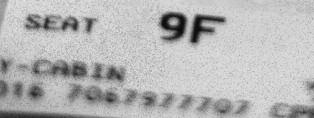

Diners and Darwin
Summer vacation – pine cabins, diner food, old cars, walks in the woods - It can convince us that everything was once better than it is now. Surely we appreciate drive-in movies and general stores because of the simple fact that we are on vacation, but the appeal of these vintage offerings is also the result of evolution. Our parents could tell us that many diners served awful food, and drive-in theaters were, in some cases, frankly alarming. Today’s quaint survivors are here because they were better than the others, or they focused on really good pie and coffee or great family movies – or because they’re in the in-between locations where population is too thin to support a Starbuck’s.
Businesses evolve, just as organisms do, so some of the same principles apply. A key mechanism of evolution may be in action right now. During cataclysmic events, evolution accelerates. Ice ages, famines, and climate shifts turn small differences into crucial advantages, and survivors often display substantial changes. What sort of economic winnowing is going on right now? What will flourish in the spaces created by our changing markets? Who will build on the sites of all of those car dealerships?
Here on the Maine coast, a few changes are apparent. There are more retail vacancies than usual, but not all the news is bad. Bicycle Bob reports that rentals and sales are strong. The bed & breakfast up the hill is full of guests who used to go to France in the summer. Sal, at Guitar Fun, tells of eager buyers who say “if I’m not getting a car this year, I’m buying myself a Stratocaster.” Yet vacation homes are available cheap, especially on the foreclosure list at the local bank. Consumers are forcing their desires into new channels, and some of these will stick, even if the economy regains its breath.
On a larger scale, what can we expect? Savings rates are up- is it too much to hope that stupidity rates will stay down? Will the nostalgics of the future laugh about subprime loans with teaser rates, negative savings, plastic-wrapped individual peanut butter slices, and three-digit cable bills? Will investors price assets as if they’ll hold them for more than a week?
My grandmother outlived her CRE spouse by nearly 40 years, but she never lost her habit of saving much and buying little. The Great Depression began a week into her first pregnancy, and her generation quickly evolved a habit of thrift. It did not leave her, even when her financial future was assured. When she outlived even the most optimistic actuarial tables, her careful saving turned out to be important. Current generations are experiencing long-term unemployment and investment losses for the first time. The resulting financial conservatism has shaken the prices and values of anything discretionary – vacations, cars, dining out – and corporations are avoiding anything labeled as a “special project.”
As a few positive signs appear in the economic fog, clients are returning to the markets, but in a different way. Many CREs report that clients are in a “question everything” mode – conducting greater sensitivity analysis, eschewing long-term projections, and demanding viable alternative uses for everything they do. Will greater discipline become a permanent, evolved aspect of the species? Or will it fade when this era ends?
I won’t be back to the Maine coast for another year, and until then, my mind won’t be able to wander quite this freely. I hope we’ll evolve a little bit before I come back.
Copyright 2009 - Noah Shlaes